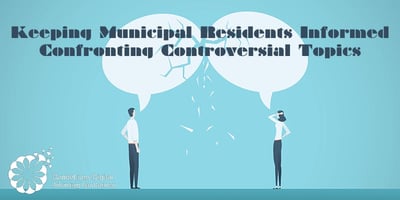March is a Great Time to Go Green!
“What you do makes a difference, and you have to decide what kind of difference you want to make.” -Jane Goodall
Are you looking for ways to celebrate March? Why not Go Green and help make a difference? This March, we examine ways we can become a little eco-friendlier and help reduce our carbon footprint.
Let’s start by defining carbon footprint. What does carbon footprint really mean? According to Mike Berners-Lee, a professor at Lancaster University in the UK and author of The Carbon Footprint of Everything, it is “the sum total of all the greenhouse gas emissions that had to take place in order for a product to be produced or for an activity to take place.” The bulk of any individual’s carbon footprint will come from housing, transportation, and food.
Have you ever considered your own carbon footprint and ways to make it smaller? Measuring your footprint requires examining how you live, work, eat and travel. Some things to consider: how many miles you travel each year (consider ground and air), the energy used in your home, how much you spend on shopping and the composition of your diet. Are you following the three R’s (reduce, reuse, recycle)?
If we want to help in lowering our own carbon footprint, let’s look at some simple ways we can all Go Green this March to reduce our energy usage, create less waste and use fewer resources. We not only can make an impact on our earth and our climate, but we are also setting a great example for future generations.
Let’s begin at home. Consider some of the following small changes:
–Skip the bottled water. According to a report by Food and Water Watch, an astounding 64% of bottled water is just tap water in a bottle. It also found that one in five states don’t regulate bottled water manufactured and sold in-state. The U.S. Food and Drug Administration regulates bottled water sold nationally, but they do not necessarily do so on a state level. Bottled water is also 2,000 times more expensive than tap water!
–Switch out your light bulbs. According to the US Department of Energy, LEDs use up to 90% less energy and last up to 25 times longer than traditional incandescent bulbs. Also, be sure to switch off lights and unplug chargers when not in use.
–Adjust your heating and cooling appliances. As the seasons change, it’s the best time to turn down the heat and open the windows. Open your curtains for natural light and turn off lamps.
–Borrow before you buy. Use your local library for books, videos, and magazines. Check out retail consignment shops and shop on-line at Craigslist, Freecycle, or Buy Nothing groups. Donate to—and shop at—thrift stores. You’ll be recycling perfectly usable items and supporting your local economy. You will also be saving money!
–Start a garden at home and compost food waste. Compost makes for a great fertilizer! You can compost your own food items or start a food compost program in your municipality. Learn more about Media Borough’s residential food composting program here.
When traveling, consider small changes that can make big difference:
–Rethink your transportation. If possible, ride your bike to work or school (and encourage the kids). When driving, take it easy on the gas pedal. Drive “like you have an egg under your foot,” recommends Brian West, an expert in fuel and engine research from the Oak Ridge National Laboratory, which researches energy use and solutions in the United States. Have your car serviced frequently and use your air-conditioning and heat less often.
-Use public transportation when possible. Park the car and travel by bus or train.
The workplace, like the home, has many opportunities to make changes:
–Turn off lights and computers at the end of the day. Encourage your team members in the office to make sure their computers have the power down option set as well as the hibernation option set. Screen savers do not save energy. In fact, they are considered energy wasters. Your computer must provide twice as much energy to light up your computer screen when the screensaver option is turned on as it normally does when your computer is running.
–Recycle paper and consider ways to email instead of printing.
Turn these simple steps into everyday habits and spread the word to others on going green all year long. Most importantly, these small changes will teach our children and future generations. Little things, and little hands can make a big difference and turn our towns into green communities.
Is your business or municipality already Going Green this month? Let DandeLions Digital help you spread the word digitally. We’re proud of how we have helped our municipal clients promote green initiatives in their boroughs and townships.





